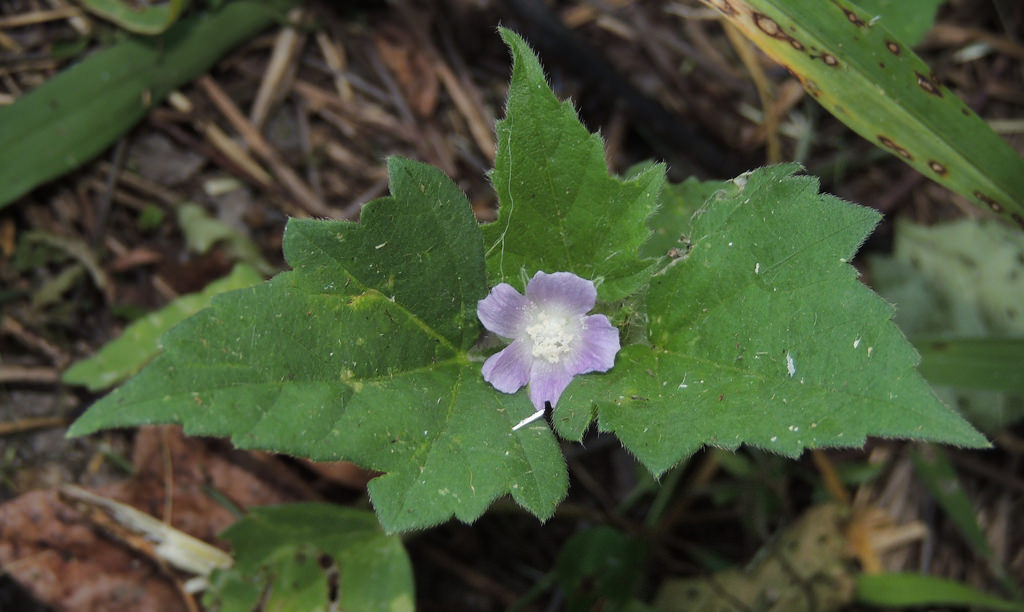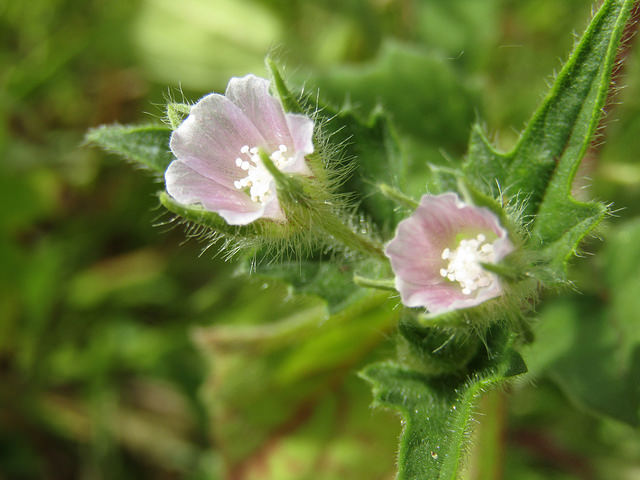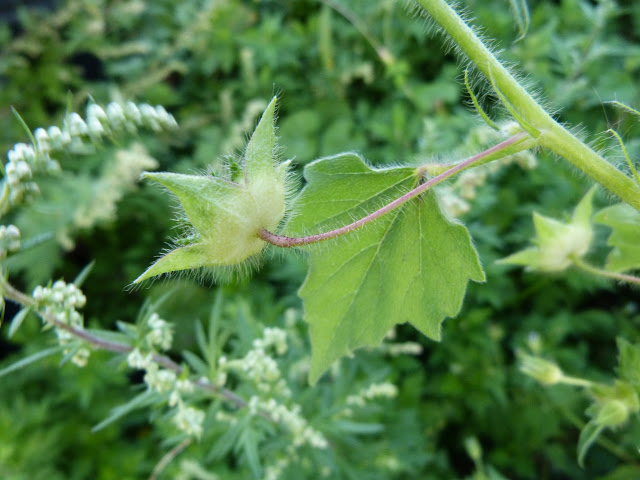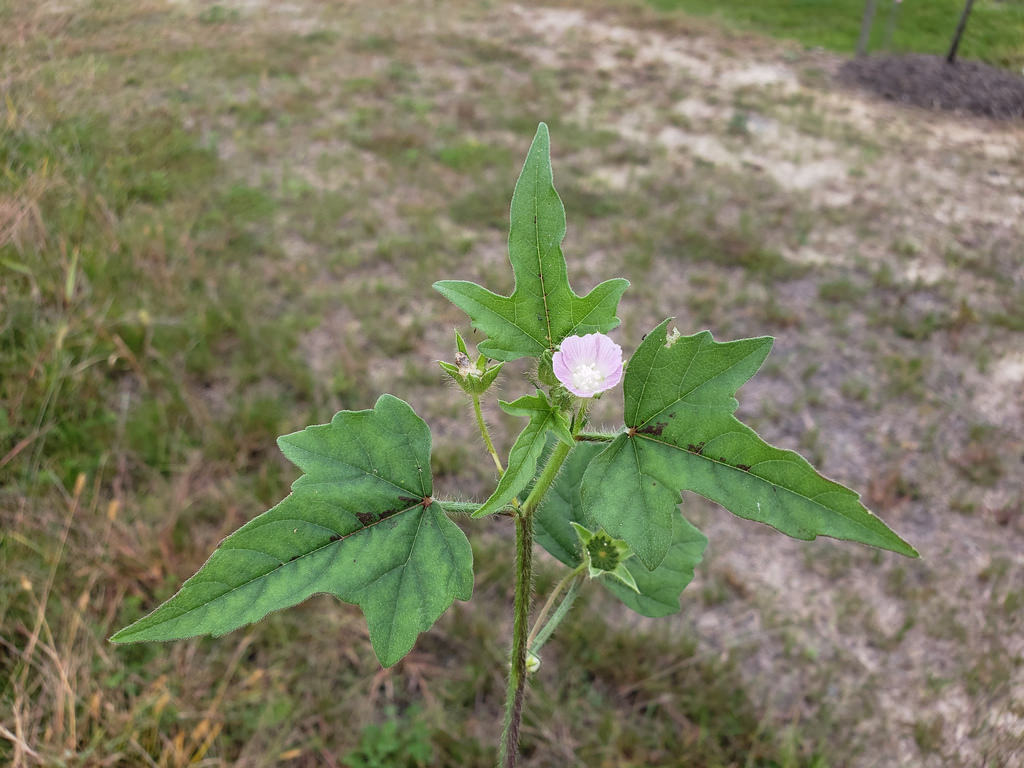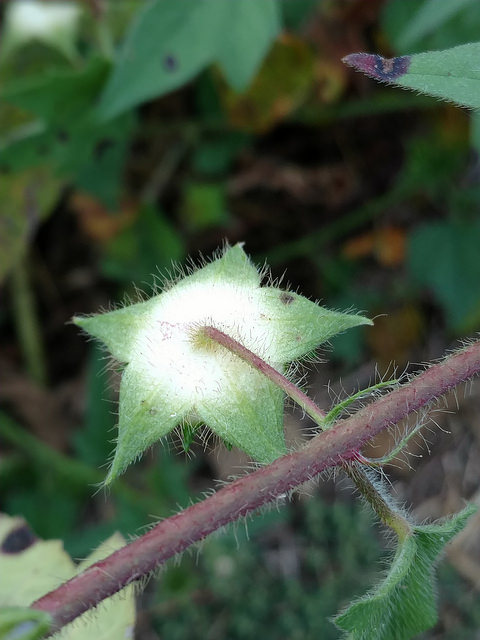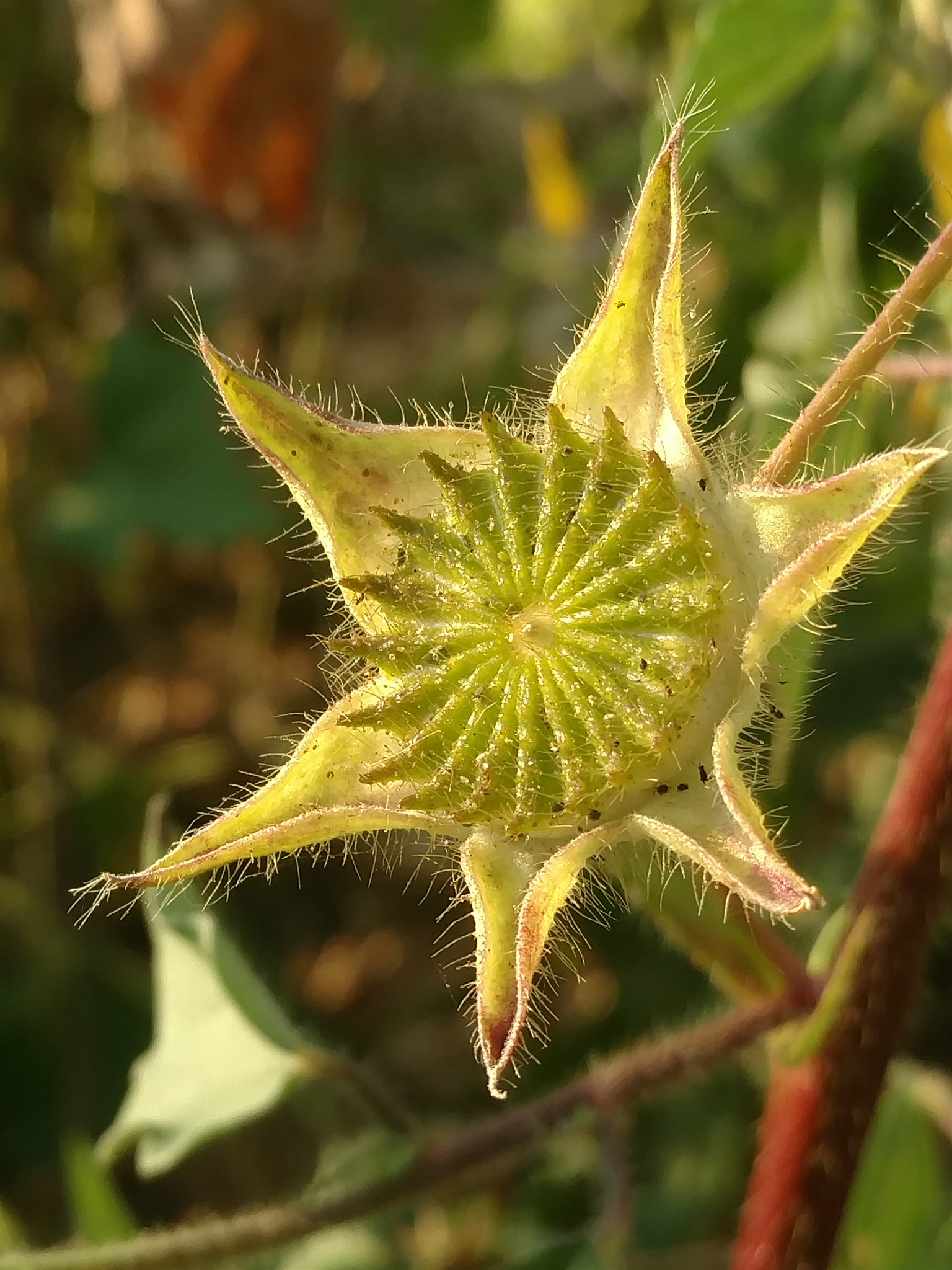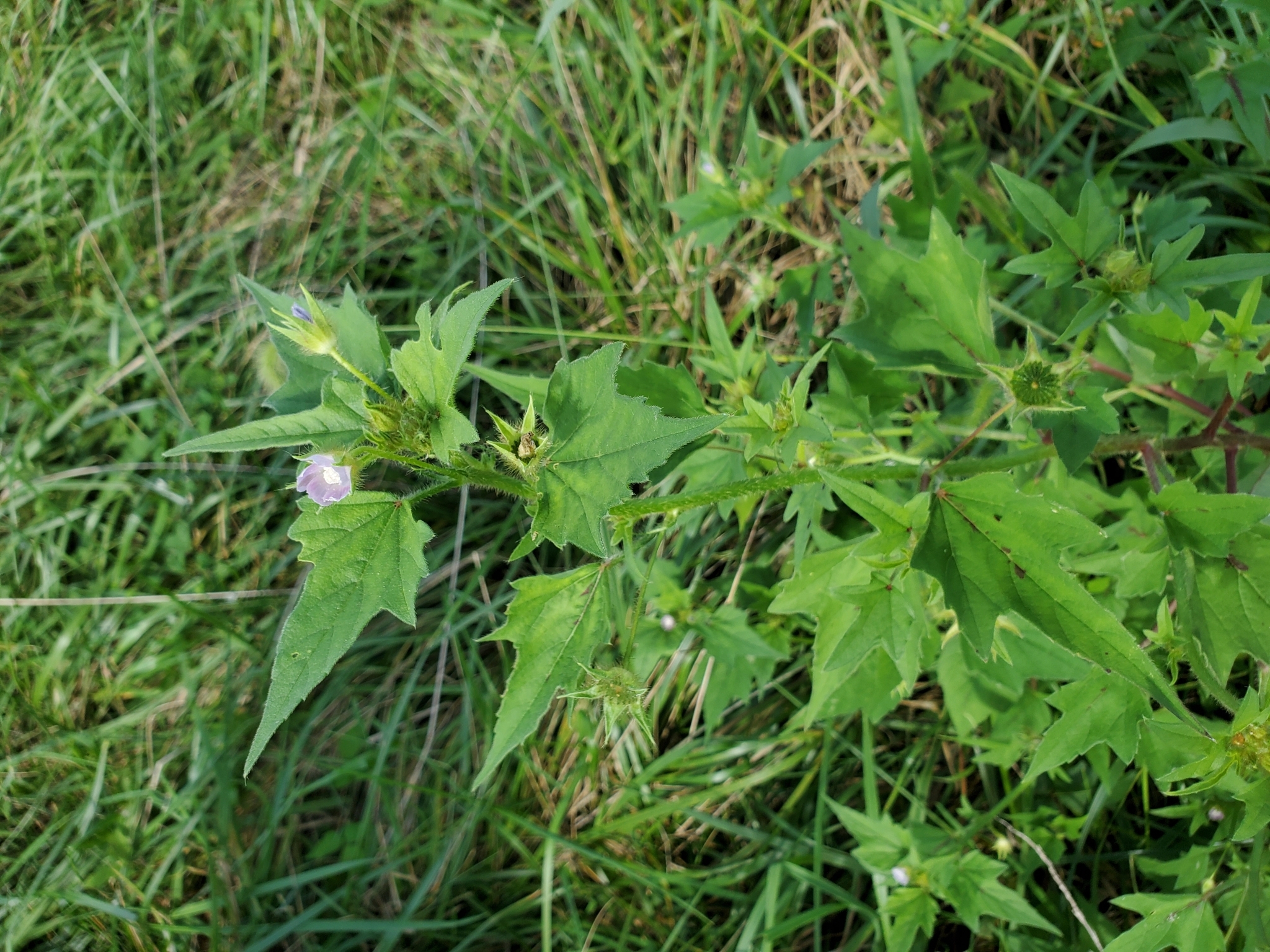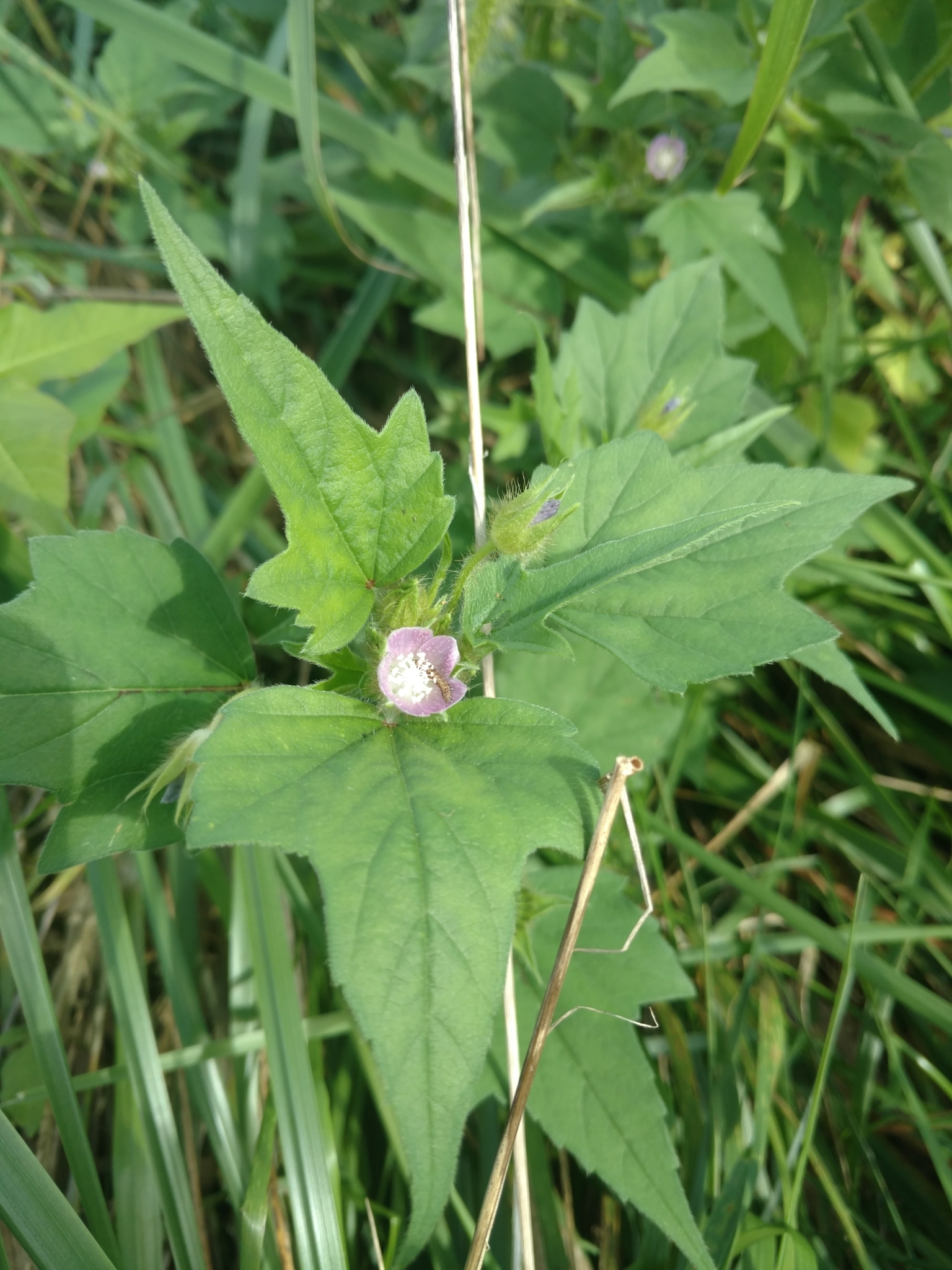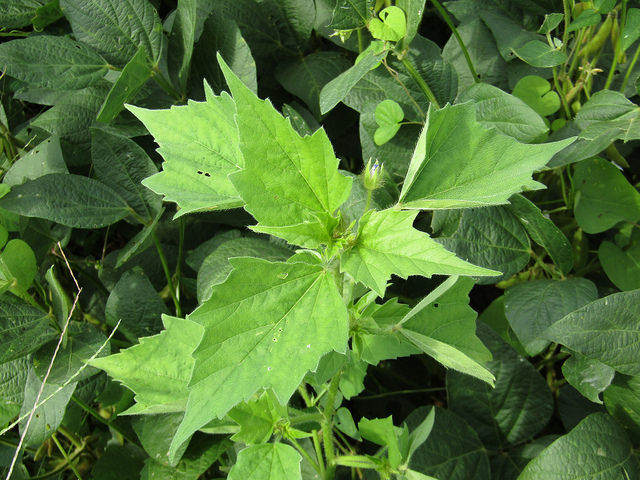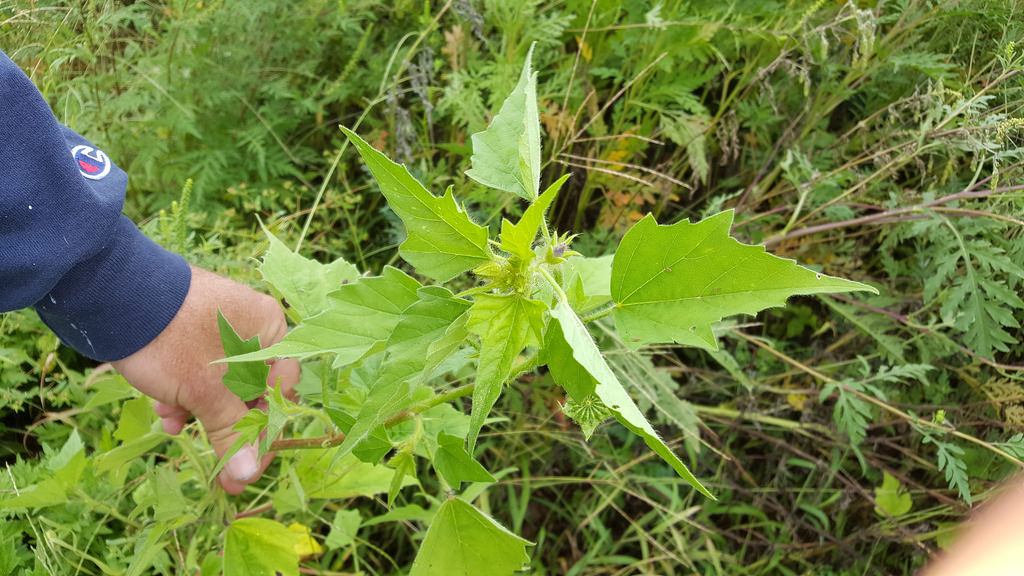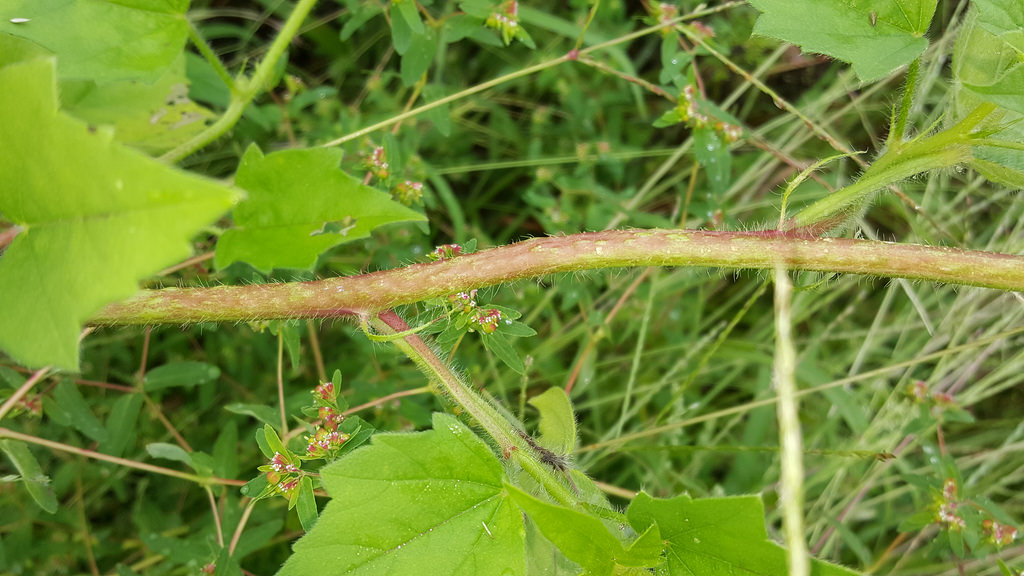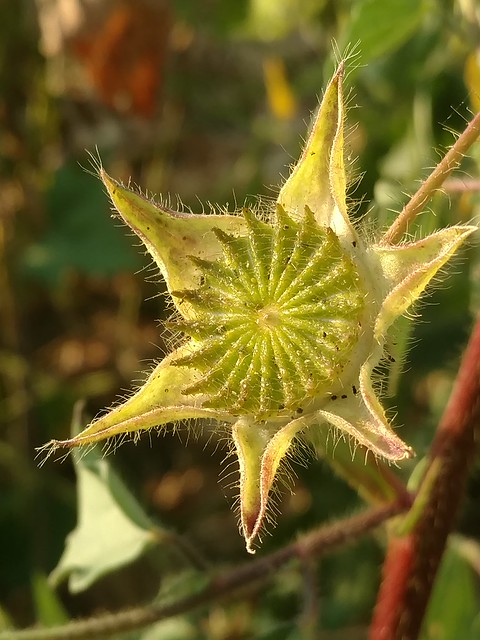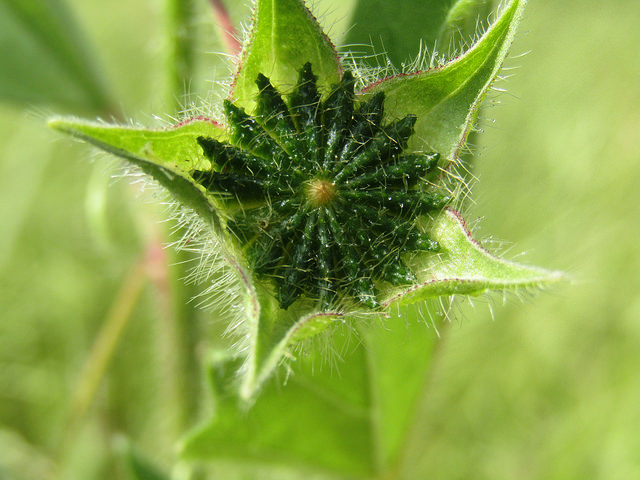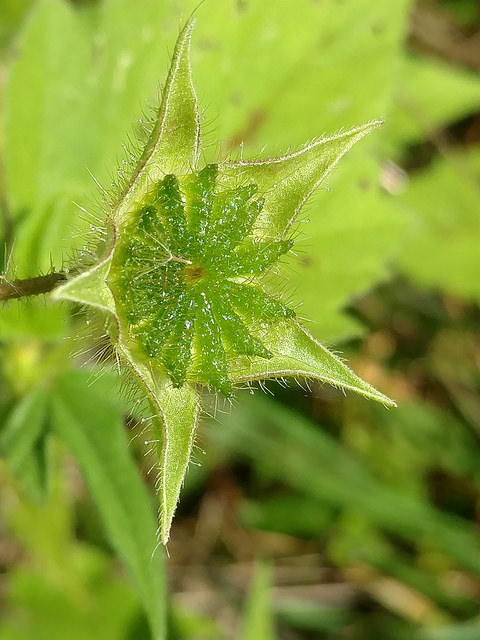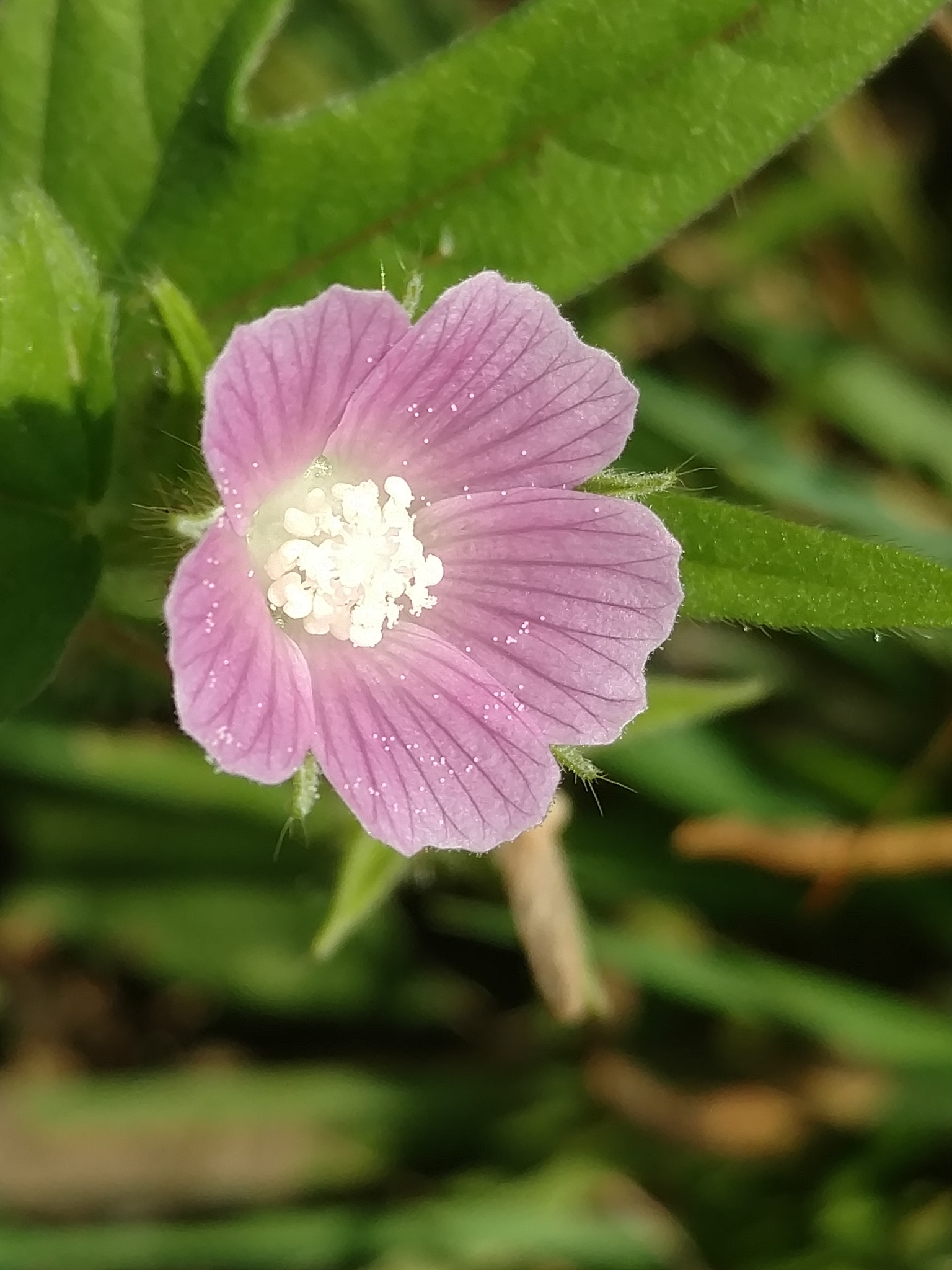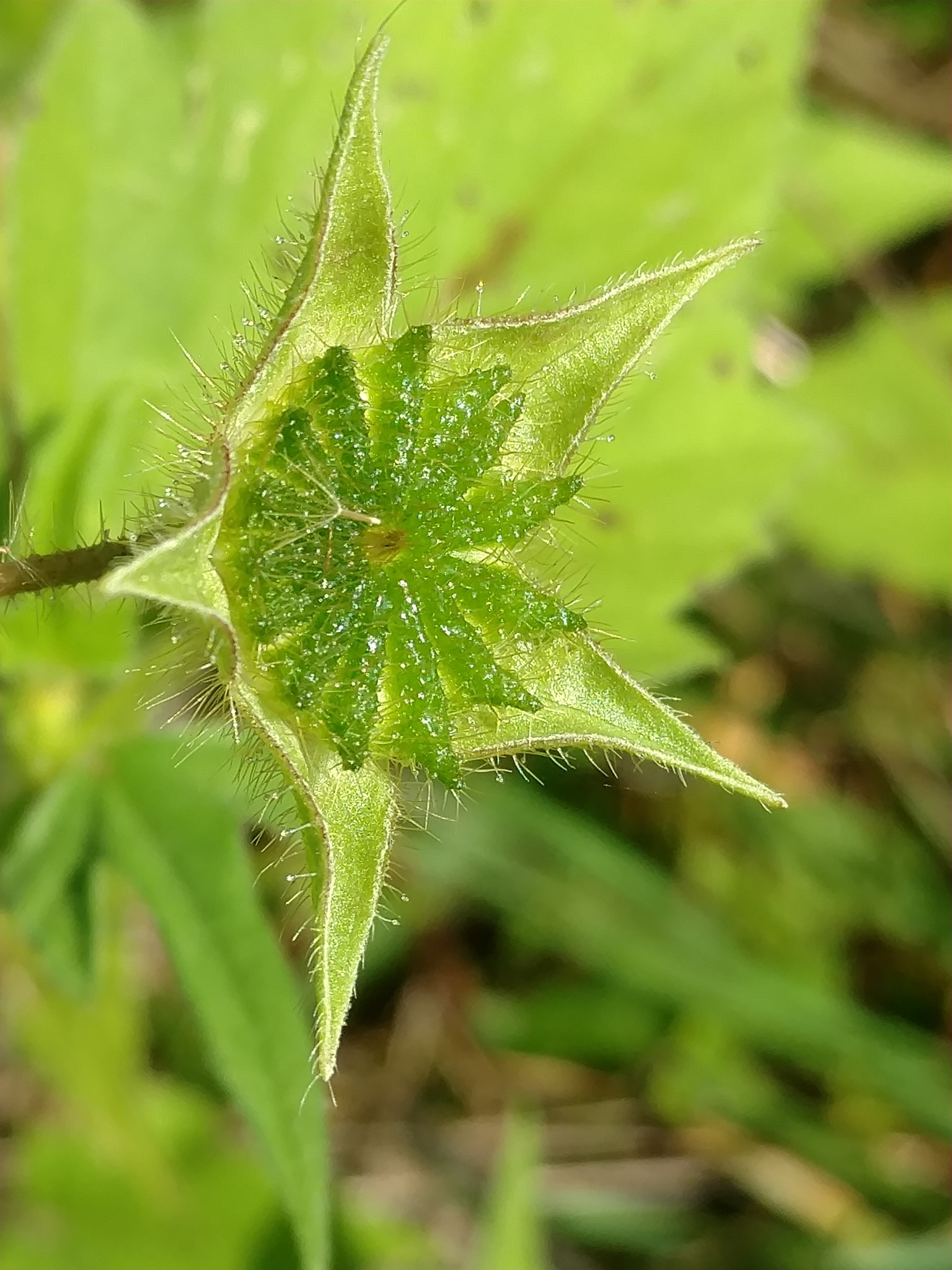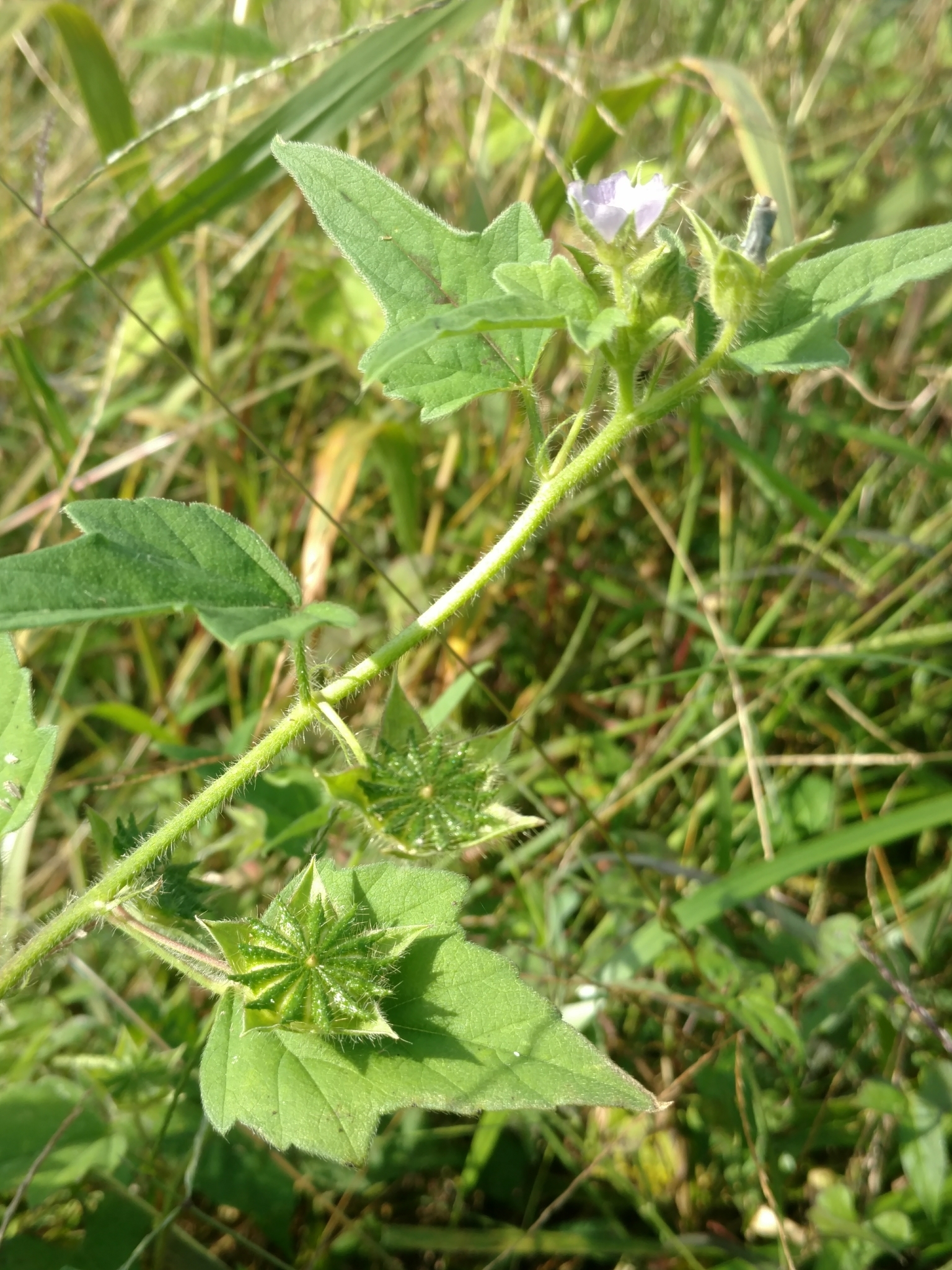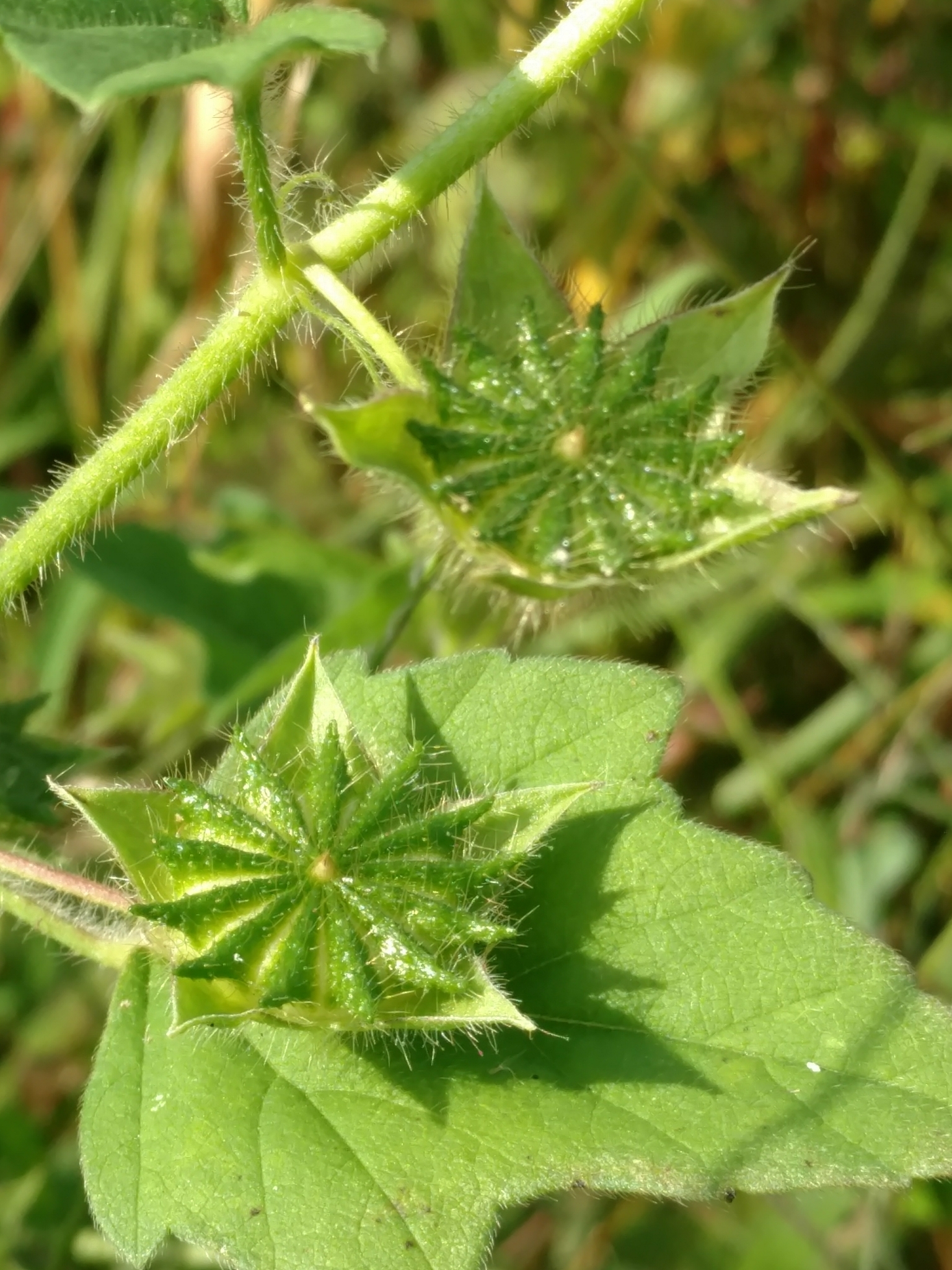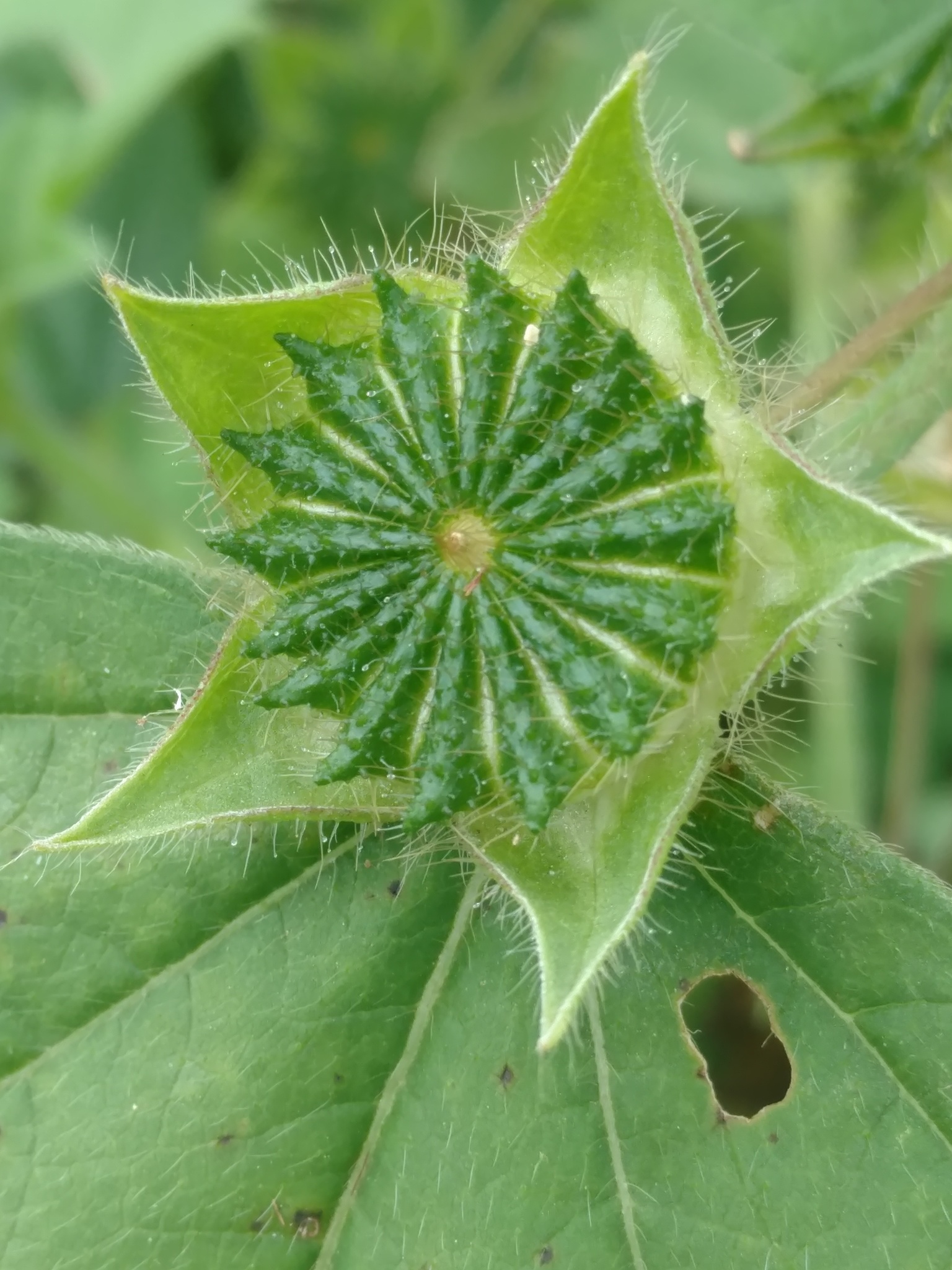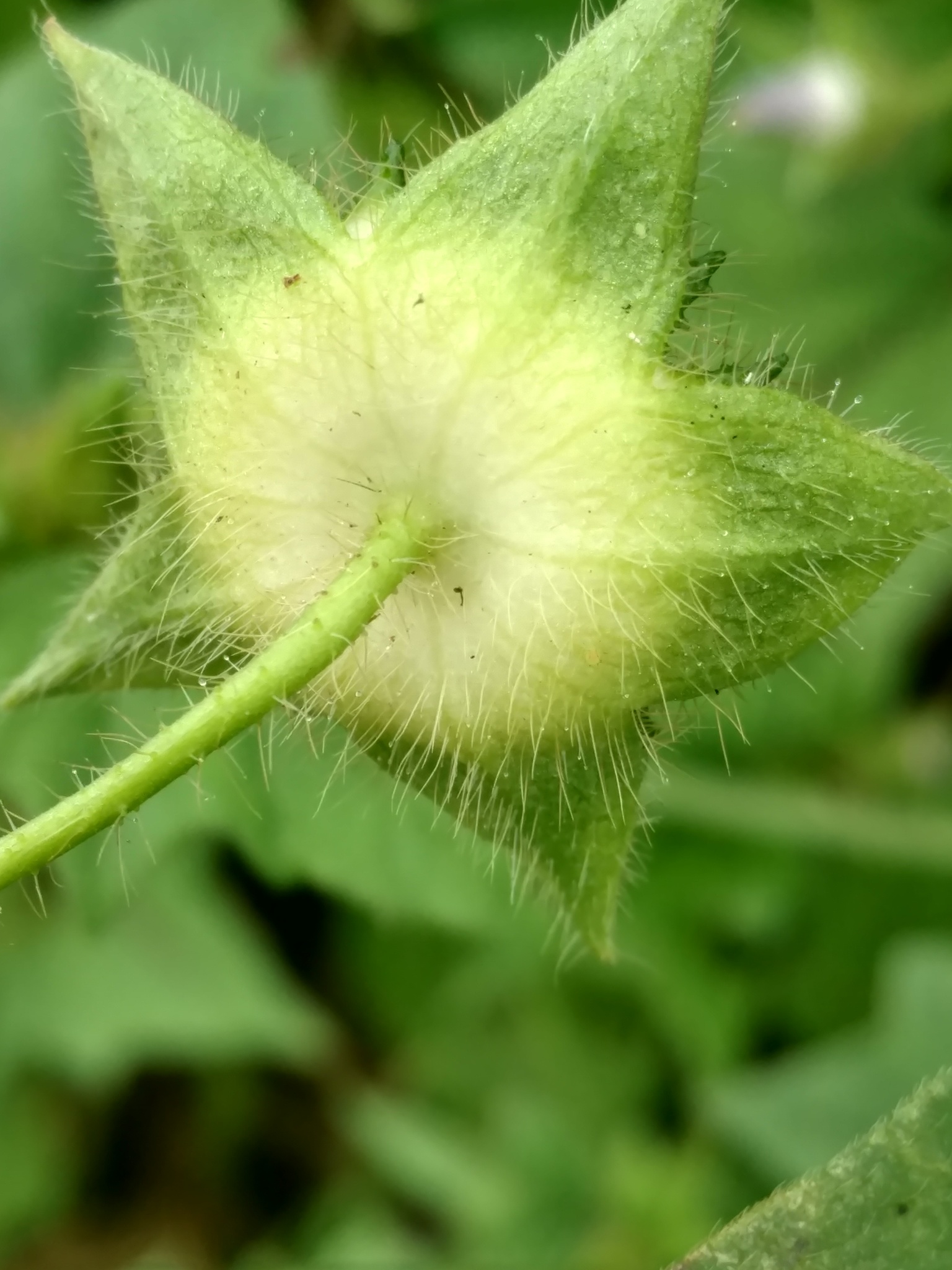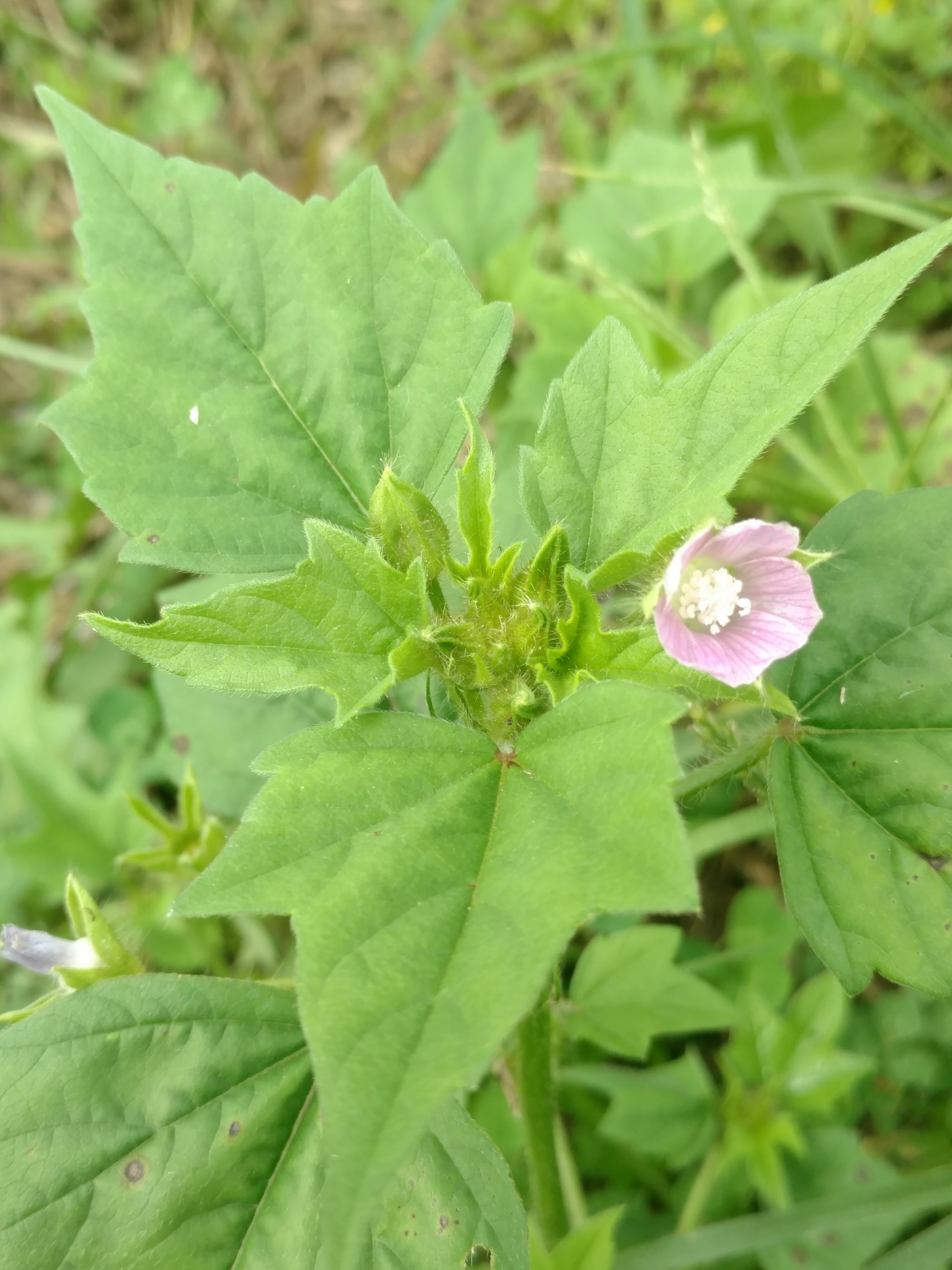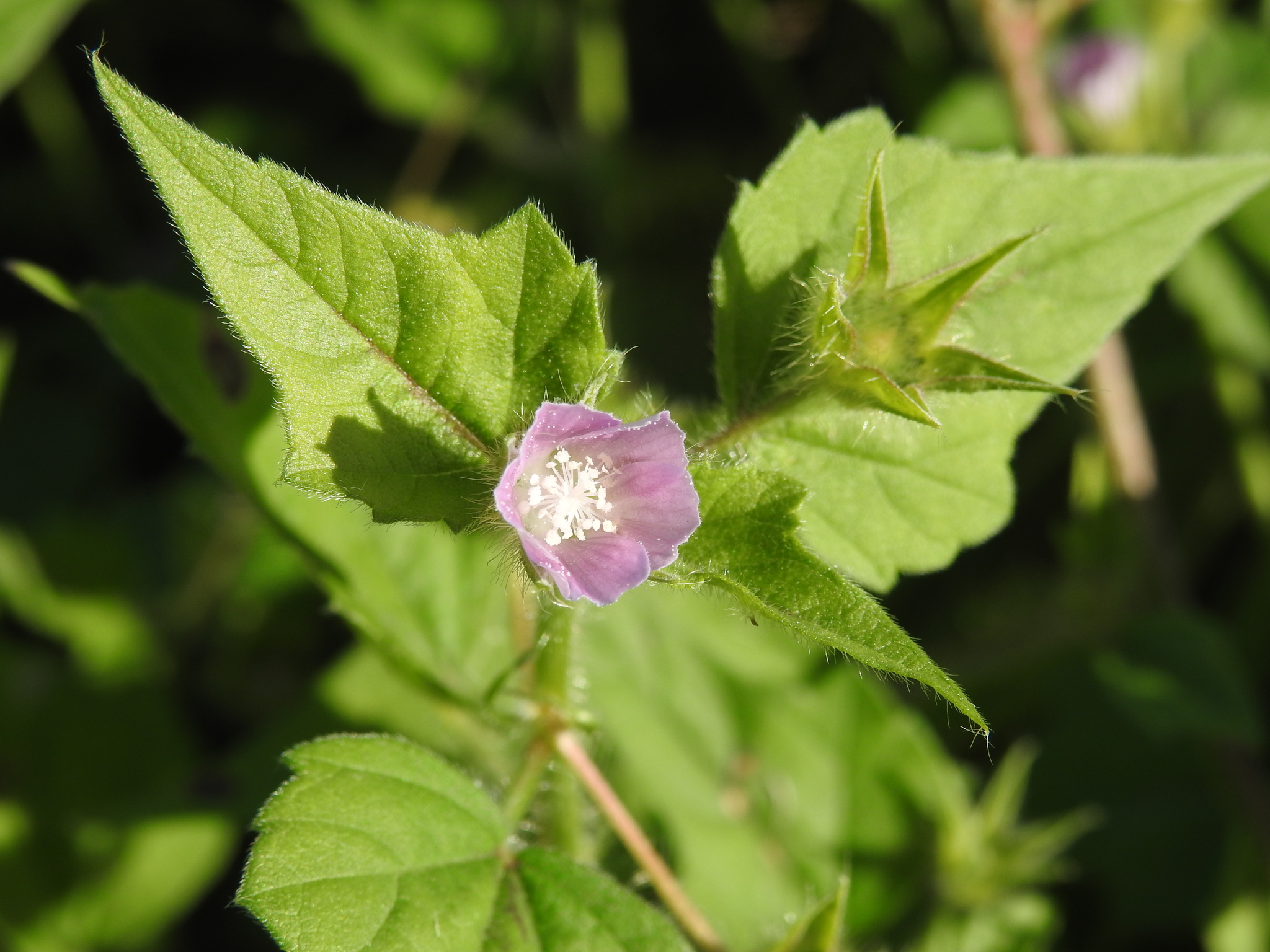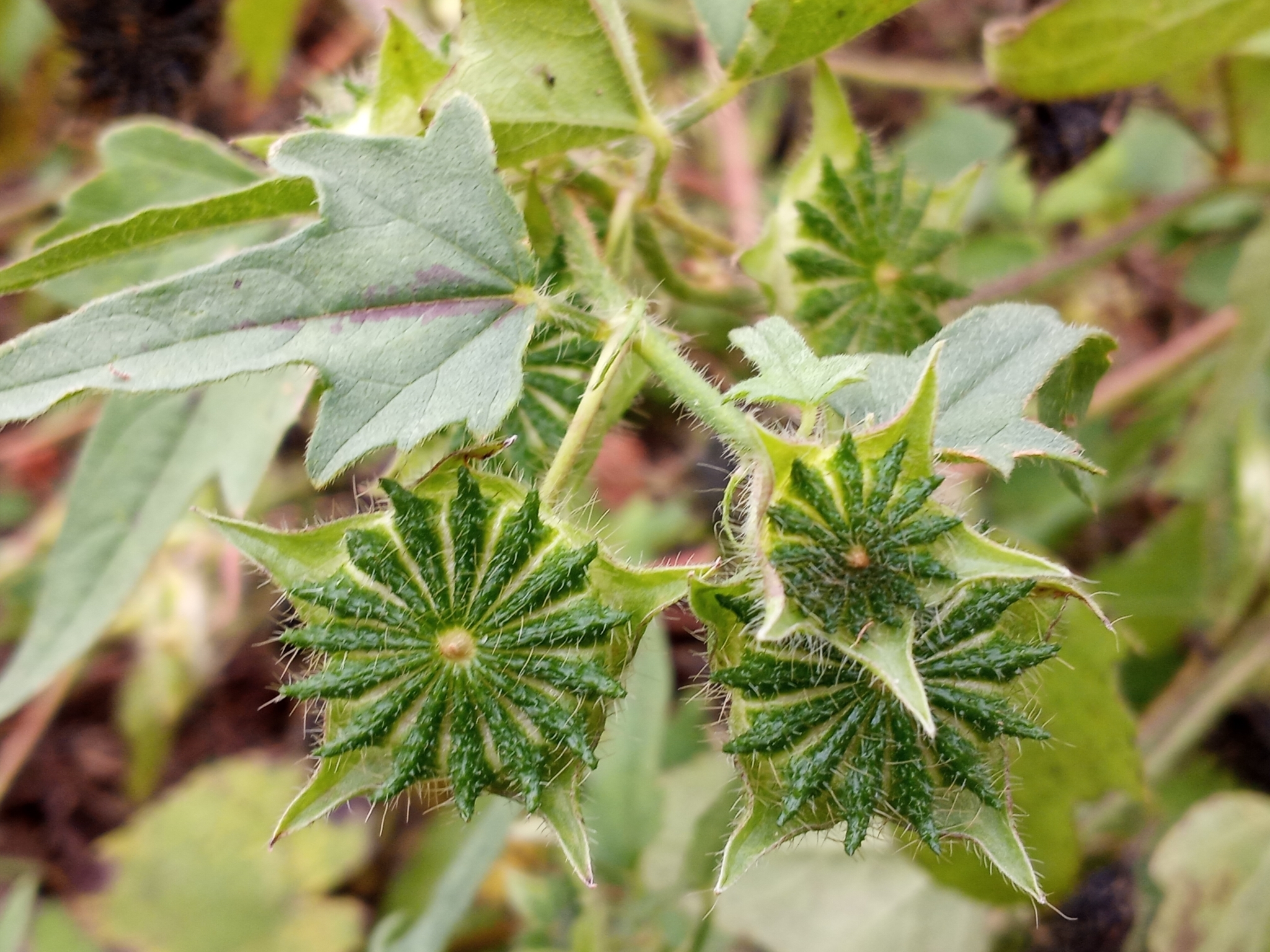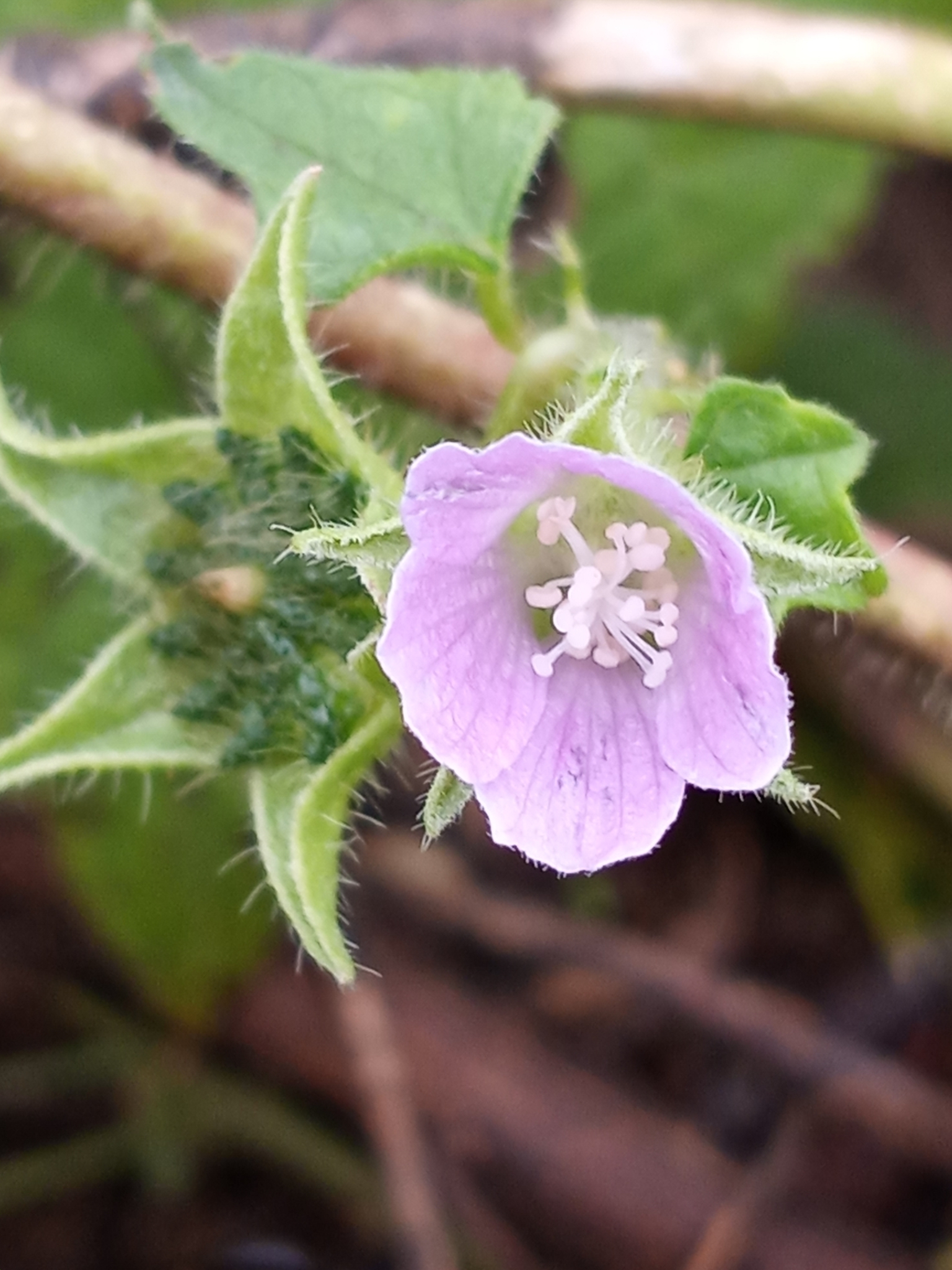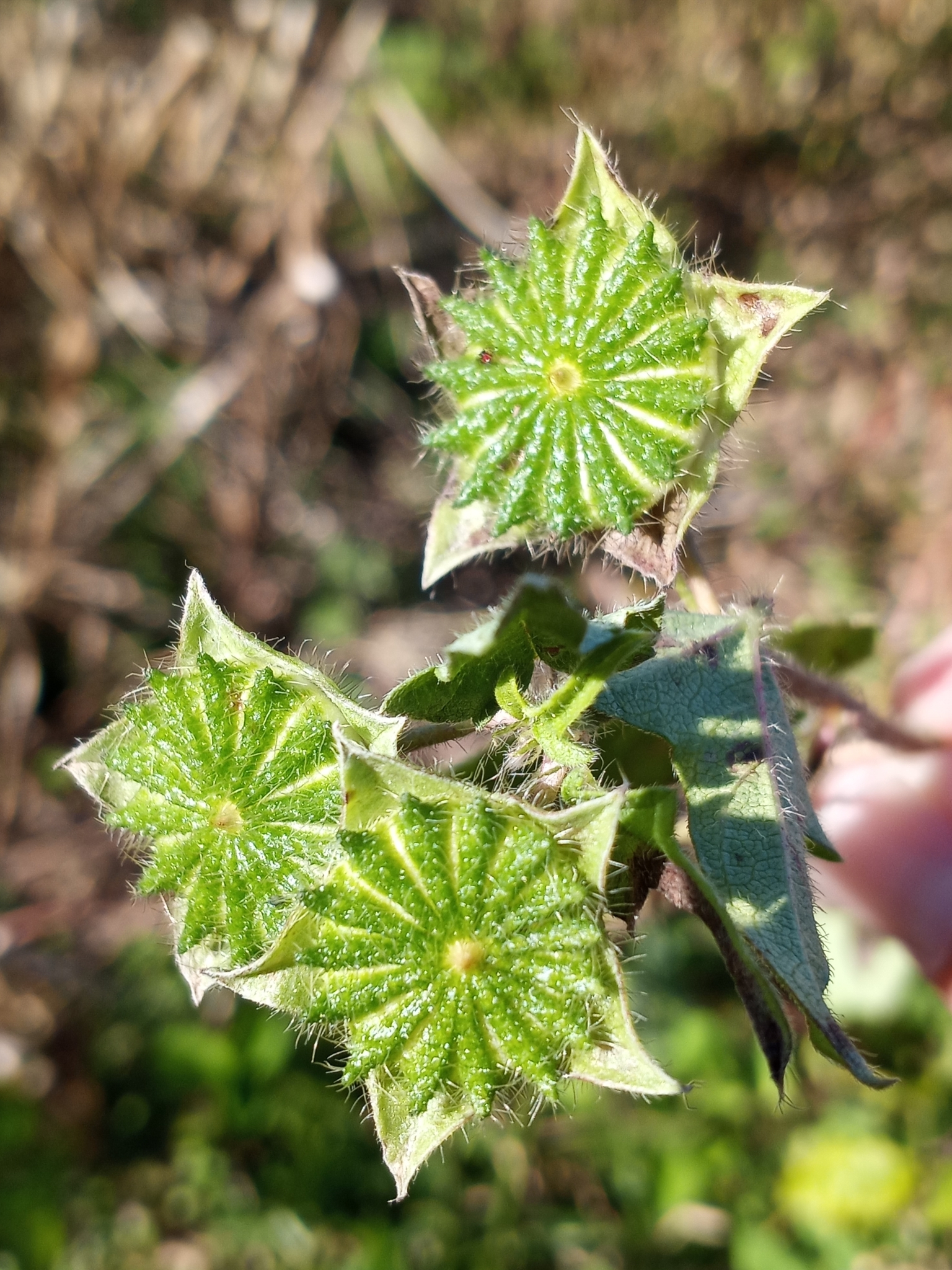Map Snapshot











120 Records
Status
Listed as a noxious weed for Maryland.
Seasonality Snapshot
Source: Wikipedia
| Anoda cristata | |
|---|---|

| |
| Anoda cristata (L.) Schltdl. | |
| Scientific classification | |
| Kingdom: | Plantae |
| Clade: | Tracheophytes |
| Clade: | Angiosperms |
| Clade: | Eudicots |
| Clade: | Rosids |
| Order: | Malvales |
| Family: | Malvaceae |
| Genus: | Anoda |
| Species: | A. cristata
|
| Binomial name | |
| Anoda cristata | |
| Synonyms[2] | |
| |


Anoda cristata is a species of flowering plant in the mallow family known by many common names, including spurred anoda,[3] crested anoda,[4] and violettas. It is native to North and South America.[5] It is known throughout the rest of the Americas as well as Australia as an introduced species and often a noxious weed. It has been found as a weed in Belgium.[6] Naturally, it is often found near streams, in moist meadows, and in disturbed areas.[7]
This is an annual herb reaching a maximum erect height between one half and one meter.[8] The stem is ridged and branching. The plant is variable in morphology, especially in leaf shape, but leaves are usually somewhat triangular, and hairy. Solitary flowers grow in the leaf axils on long pedicels.[9] The flower is 2 to 3 centimeters wide, with pointed green to reddish sepals and 5 petals, which may be blueish-purple or reddish-pink in color.[5] The fruit is a bristly, disc-shaped capsule with 9 to 20 segments. Each segment produces a seed. This is sometimes an agricultural weed, especially of soybeans.[10] It is tolerated as a weed of crop fields in parts of Mexico, and even fostered, because it is eaten and used as a source of medicinal remedies.[11]
References
[edit]- ^ "NatureServe Explorer". Retrieved 2021-05-17.
- ^ a b "Anoda cristata". Germplasm Resources Information Network. Agricultural Research Service, United States Department of Agriculture. Retrieved 18 April 2017.
- ^ BSBI List 2007 (xls). Botanical Society of Britain and Ireland. Archived from the original (xls) on 2015-06-26. Retrieved 2014-10-17.
- ^ USDA, NRCS (n.d.). "Anoda cristata". The PLANTS Database (plants.usda.gov). Greensboro, North Carolina: National Plant Data Team. Retrieved 8 January 2016.
- ^ a b "Anoda cristata (crested anoda): Go Botany". gobotany.nativeplanttrust.org. Retrieved 2021-05-17.
- ^ "Anoda cristata". Manual of the Alien Plants of Belgium. Archived from the original on 2021-05-17. Retrieved May 17, 2021.
- ^ "Anoda cristata, Crested Anoda, Southwest Desert Flora". southwestdesertflora.com. Retrieved 2021-05-17.
- ^ "Lady Bird Johnson Wildflower Center - The University of Texas at Austin". www.wildflower.org. Retrieved 2021-05-17.
- ^ "SEINet Portal Network - Anoda cristata". swbiodiversity.org. Retrieved 2021-05-17.
- ^ Puricelli, E. C. and D. E. Faccini. (2005). Effect of soybean spatial arrangement and glyphosate dose on Anoda cristata demography. Crop Protection 24:3 241-49.
- ^ Rendón, B., R. Bye, and J. Núñez-Farfán. (2001). Ethnobotany of Anoda cristata (L.) Schl. (Malvaceae) in central Mexico: Uses, management and population differentiation in the community of Santiago Mamalhuazuca, Ozumba, state of Mexico. Economic Botany 55:4 545-54.
External links
[edit]
